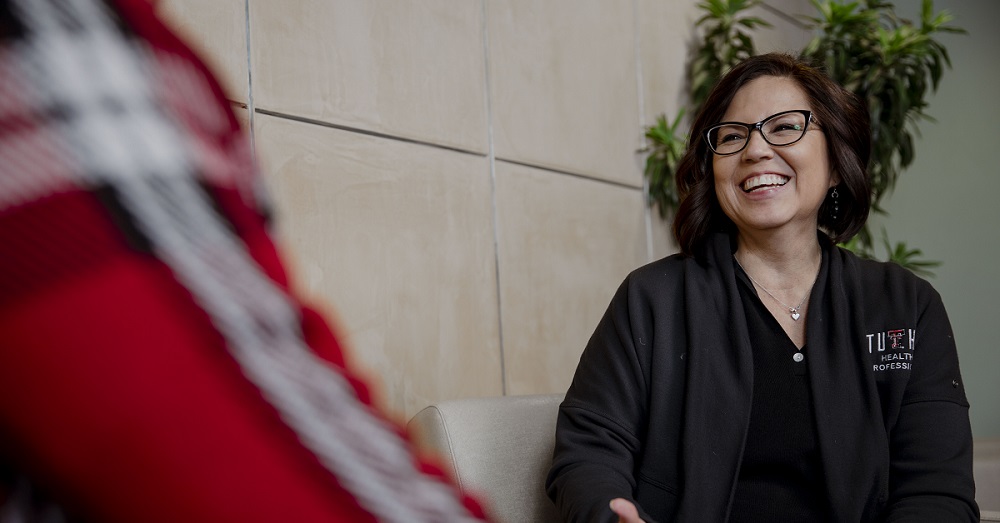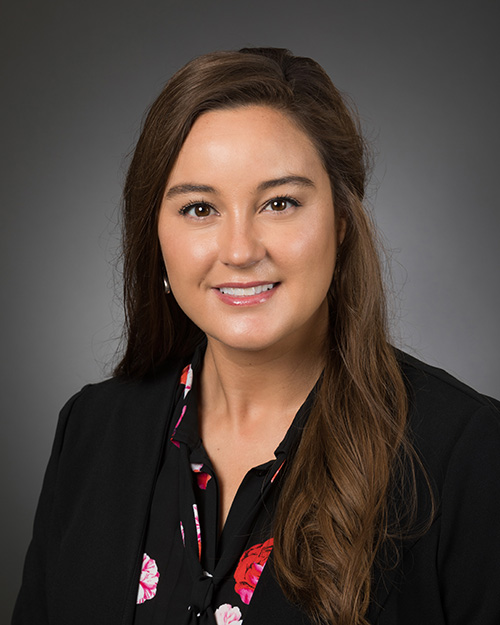Maintaining Mental Wellness Through the Holidays
A guide to surviving the stressfulness of the holiday season.

Self-care plans are important during the holidays
A 2014 survey by the National Alliance on Mental Illness (NAMI) revealed that 64 percent of people dealing with a mental health disorder found their symptoms worsened by the holidays.
The changing season can have positive and negative effects on our mental health, impacting our sleep schedules, causing potential isolation and pressures from familial obligations.
We spoke with Logan Winkelman, Ph.D., LPC-S, NCC, about what stressors the holidays can bring out, and how to maintain boundaries and self-care throughout the season. Winkelman is the Program Director and Assistant Professor of the Master of Science in Clinical Mental Health Counseling program within the Clinical Counseling and Mental Health Department in the TTUHSC School of Health Professions.
Holiday Stressors and Triggers
While the winter holiday season is a wonderful time of festivities and traditions, for many, it can be stressful and anxiety-provoking.
Winkelman lists finances, traveling, hosting, crowds, increased expectations, and pressure to participate in social events as specific stressors we often face during the holidays.
“Throw a dart, and you can hit a holiday stressor,” she says.
Many people deal with increased levels of sadness, fatigue, tension and depression when the season changes typically during the winter months. This is known as Seasonal Affective Disorder (SAD).
For some, the holiday season may serve as some relief and encouragement. For others, the added pressures for social engagement may cause more harm than good.
For example, isolation and loneliness can be exacerbated by the holidays.
“During the holidays, we feel closest to family and friends,” Winkelman says. “If we have a loved one we’ve lost or we’re not able to be with, that isolation and loneliness can get really intense.”
The Importance of Boundaries During the Holidays

Logan Winkelman, Ph.D., LPC-S, NCC
Setting boundaries for your time and presence during the holidays is vital to maintaining good mental health. It can be challenging, from social obligations involving work to family obligations involving that one relative who sets off every trigger. But establishing and adhering to boundaries is one way to avoid many common holiday stressors.
“Setting boundaries is a skill set we don’t tend to learn,” Winkelman says. “We don’t learn how to say no to things. When we try, we’re often ineffective.”
This lack of effectiveness can be caused because we may not know what our needs are, which is the first step in establishing boundaries.
“We often put our needs on hold to meet the needs of others. We have to know what our needs are,” Winkelman says.
And these needs will be different for everyone. Winkelman points out that she’s introverted and derives a lot of energy from time alone.
“The holiday season can be really stressful, because I’m constantly engaging in activities that are taking away my energy,” she explains. “I need to check out sometimes to meet my needs and recharge my batteries.”
How to Set and Maintain Boundaries
“Understand that there are going to be certain things you can control, and certain things you can’t,” Winkelman says. “Address the things you can control, like your home and physical and mental well-being.” This builds resilience for the life events that come out of left field.
Setting boundaries around challenging conversations with family can be difficult. Whether it’s politics or who should be coaching the local team, there are many topics that are potential minefields for every family.
It’s important to enter these situations knowing what you do and don’t want to discuss or engage in, she says. It might be a good idea to have some phrases in your back pocket in order to redirect any unwanted conversations.
“I love to see people who are willing to engage in behaviors that help to protect their well-being,” Winkelman says. “Don’t give the reins to someone else to have control over your emotions.”
Have a Self-Care Plan During the Holidays
The winter blues are real, Winkelman says, and it’s important to stay in tune with how you’re feeling. She recommends implementing a self-care plan.
“Have a list of go-to activities you like to engage in to help care for yourself,” she says. “You can use mindfulness, meditation, journaling and mood meters to keep in touch with how you’re feeling.”
Part of your self-care includes setting realistic expectations for yourself and others, and accepting that imperfection is normal and to be expected. Things rarely go exactly as planned, especially during the holidays! That’s why we have films like Home Alone.
Winkelman recommends being gentle with yourself and connecting with others. The holidays are an ideal time to express gratitude to the people who matter to you. We often get so busy during this time of year that we forget to take the time to focus on what is good. Showing gratitude and connecting with others helps bring that focus.
Winkelman adds that maintaining healthy habits, such as a consistent sleep schedule, nutritional foods and physical activity, will help to get you through the winter months. It’s also good to get some sunshine.
“Less exposure to natural light can increase symptoms of depression,” she says
“Never underestimate the power of breathing exercises and mindfulness practices,” Winkelman stresses. “We build up tension when we breathe really shallowly.”
Other strategies like yoga, walking or listening to music will help you feel present and in the moment.
Winkelman also stresses the importance of seeking help.
“If things are really getting overwhelming and it’s affecting your daily function, consider counseling,” she says. “Don’t be afraid to ask for help.”
Related Stories
The John Wayne Cancer Foundation Surgical Oncology Fellowship Program at Texas Tech University Health Sciences Center Announced
TTUHSC is collaborating with the John Wayne Cancer Foundation and has established the Big Cure Endowment, which supports the university’s efforts to reduce cancer incidence and increase survivability of people in rural and underserved areas.
Making Mental Health a Priority in the New Year
Sarah Mallard Wakefield, M.D., a psychiatrist with Texas Tech Physicians, talks about strategies to combat widespread and growing anxiety.
TTUHSC Dean to be Inducted into the National Academies of Practice as Distinguished Fellow
Gerard E. Carrino, Ph.D., MPH, dean of the TTUHSC Julia Jones Matthews School of Population and Public Health, will be inducted into the National Academies of Practice (NAP) as a Distinguished Fellow of the Public Health Academy.
Recent Stories
The John Wayne Cancer Foundation Surgical Oncology Fellowship Program at Texas Tech University Health Sciences Center Announced
TTUHSC is collaborating with the John Wayne Cancer Foundation and has established the Big Cure Endowment, which supports the university’s efforts to reduce cancer incidence and increase survivability of people in rural and underserved areas.
TTUHSC Receives $1 Million Gift from Amarillo National Bank to Expand and Enhance Pediatric Care in the Panhandle
TTUHSC School of Medicine leaders accepted a $1 million philanthropic gift from Amarillo National Bank on Tuesday (Feb. 10), marking a transformational investment in pediatric care for the Texas Panhandle.
Texas Tech University Health Sciences Center Permian Basin Announces Pediatric Residency Program Gift
TTUHSC Permian Basin, along with the Permian Strategic Partnership and the Scharbauer Foundation, Feb. 5 announced a gift that will fund a new pediatric residency.
